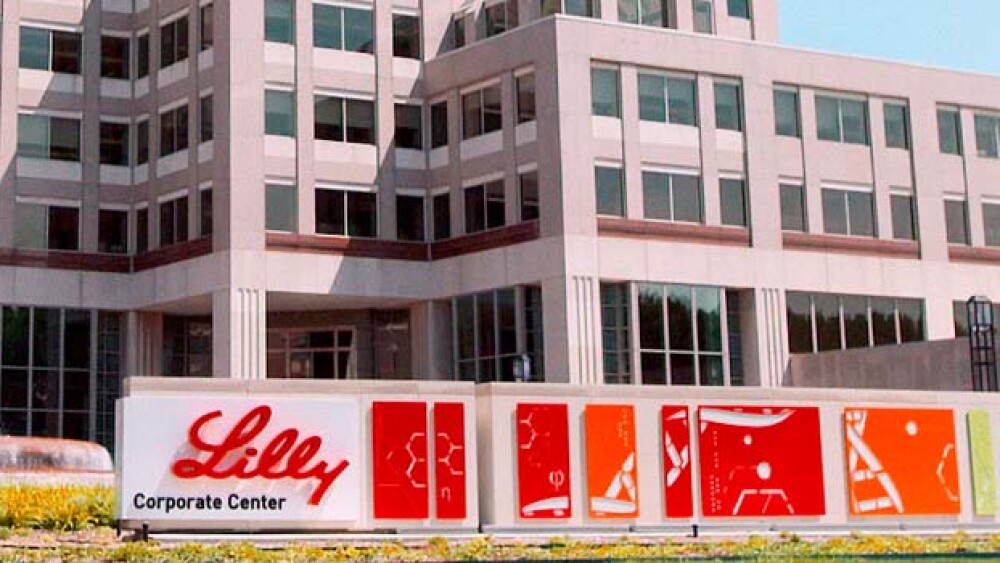Eli Lilly and Company announced that as it withdraws Lartruvo (olaratumab) from the market for treatment of advanced soft tissue sarcoma (STS), it is establishing an Access Program for patients currently receiving the drug who may wish to continue.
Eli Lilly and Company announced that as it withdraws Lartruvo (olaratumab) from the market for the treatment of advanced soft tissue sarcoma (STS), it is establishing an Access Program for patients currently receiving the drug who may wish to continue.
The withdrawal comes after the failure of the Phase III ANNOUNCE clinical trial, where Lartruvo didn’t improve patient survival. The trial was a randomized, double-blind, Phase III of Lartruvo in combination with doxorubicin, followed by Lartruvo alone compared to doxorubicin plus placebo followed by placebo in patients with advanced or metastatic STS. The two primary endpoints were overall survival (OS) in the intent-to-treat (ITT) population and OS in the leiomyosarcoma (LMS) sub-population.
Lilly indicates it will present data from the trial at the American Society of Clinical Oncology (ASCO) annual meeting in early June.
Lartruvo was approved in the U.S. and Europe in 2016 on the basis of a smaller mid-stage clinical trial under an accelerated approval program. The results of the ANNOUNCE trial were expected to verify the data but did not. The company has been working with the U.S. Food and Drug Administration (FDA) and the European Medicines Agency (EMA) on next steps and decided to withdraw the drug from global markets entirely.
The access program that will give current patients and their physicians access to the drug with limited interruption after it is withdrawn from the market. Those patients will be informed of the risks of the drug and the results of the ANNOUNCE trial. No new patients will receive the drug except via ongoing clinical trials.
“Lilly wants to ensure that patients and physicians feel supported during this important time,” stated Anne White, president, Lilly Oncology. “Advanced soft tissue sarcoma is a rare and difficult-to-treat cancer. Establishing this program will give patients who are currently taking Lartruvo the opportunity to continue their treatment program uninterrupted.”
Sarcomas are relatively rare, but diverse cancers that typically occur in connective tissue, such as fat, blood vessels, nerves, bones, muscles, deep skin tissues and cartilage. It is notoriously difficult to diagnose and treat. In 2019, the American Cancer Society estimates 12,750 new STS cases will be diagnosed, with more than 5,000 people dying from the disease in the U.S. alone.
Lartruvo is a platelet-derived growth factor receptor alpha (PDGFR-alpha) blocking antibody that binds PDGFR-alpha and prevents receptor activation.
The failure of the trial was actually announced in January. The trial showed no difference in OS in patients receiving Lartruvo with doxorubicin and the doxorubicin cohort alone. That news came only a week after the company announced plans to expand its oncology presence by acquiring Loxo Oncology for $8 billion.
Harvard Medical School and the London School of Economics published a study in 2017 that found the FDA had granted accelerated approval to 22 drugs for 24 indications, 19 in cancer. After a minimum of three years of follow-up, half had completed confirmatory trials. In those that had not wrapped confirmatory studies, at least one had failed, been terminated or delayed. For eight indications, trials had not confirmed clinical benefit at least five years after the agency granted accelerated approval.
Accelerated approval programs often rely on surrogate endpoints in evaluating trials. Surrogate endpoints are scientifically accepted signs of efficacy, such as a lab test, x-ray image or physical symptom. Accelerated approvals are typically granted to drugs for the treatment of conditions where there is significant unmet medical need.
Pharmacy Times notes, “Speeding up the approval of drugs to treat serious diseases where there are limited treatment options seems reasonable. Patients in need do not have to wait as long to have a potentially beneficial treatment reach the market. The trade-off is that there is less supporting evidence of safety and efficacy at initial approval than would be required for a drug going through a standard approval process.”





